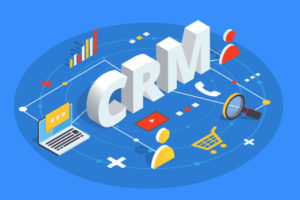 A successful business exists because of its end users, and it is imperative that organisations invest in collecting, retaining, and converting quality leads. These leads, then go on to become valued customers. A comprehensive CRM is an ideal means that helps businesses manage their customers and have fast become an indispensable part of successful enterprises. An important reason for this is because a CRM helps build enduring relationships with a diverse customer base and ensures a flawless experience throughout the entire journey.
A successful business exists because of its end users, and it is imperative that organisations invest in collecting, retaining, and converting quality leads. These leads, then go on to become valued customers. A comprehensive CRM is an ideal means that helps businesses manage their customers and have fast become an indispensable part of successful enterprises. An important reason for this is because a CRM helps build enduring relationships with a diverse customer base and ensures a flawless experience throughout the entire journey.
Studies indicate that up to 63% of current CRM systems do not meet their stated expectations, which invariably leads to a loss not just in financial terms, but also in terms of time invested in setting up the system and customer’s loss of confidence in pre-set business processes.
Organisations – whether start-ups or mature businesses – must have a clear picture of the purposes for which they wish to implement a CRM strategy and evaluate the appropriate technology that best suits their needs. Before you decide to hire a CRM software development company, read on to know some of the critical steps to consider while making the choice that could make or break your business.
1. Seamless Integration
While moving data from legacy systems to newer, more capable CRM systems, one of the most important aspects is a seamless integration of existing data into newer, standards-based architectures to ensure smoother access and easy maintenance of older data, to avoid delay and increased costs.
2. Data on the Go
With increasing focus on data accessibility, a CRM software company must ensure the performance of their CRM on mobile devices. Studies illustrate the increasing success rates of sales executives who have real time access to customer data on the go, that includes user history and customer preferences, all of which provides them with the necessary info close deals.
3. Intelligent Data
CRMs help organisations reduce costs and optimize business processes across departments by giving a unified real time view of the entire operational efficacy. Customer support teams are empowered, sales and marketing contingents have critical data that helps increase conversions significantly and business leaders are provided with actionable inputs that help increase the overall efficiency of operations and drive the business to success.
4. Scalable:
Scalability is a critical functionality for any software implementation. It renders businesses malleable depending upon service loads and ensures quick enhancements in volumes to prevent loss of business that would otherwise occur during increased usage. Scalability not only refers to the ability to support increased operational loads, but also to add required functionalities to the existing CRM that would become pertinent in the future.
5. User Experience
The employees who would be working on the CRM need to feel comfortable handling it on a daily basis, as early and easy adoption would lead to increased efficiency. It is important to factor the views of the teams who are going to work on the CRM majorly before a final decision is made. Failing to do so would result in no data entering into systems, which will mean lack of useful insights that could drive the business.
6. Segment Expert
An important aspect to keep in mind before deciding upon a CRM is the expertise of the CRM software development company and the type of businesses or customers that they have worked with. If a certain CRM software development company has prior experience only in the healthcare segment, the learning curve to develop a CRM for a construction company would be pretty steep and this has to be considered while deciding deadlines.
If you are looking for CRM development solutions for your business, contact Smart Sight Innovations today. We are an award winning CRM software development company with proven expertise in implementing CRM solutions across business sectors.











